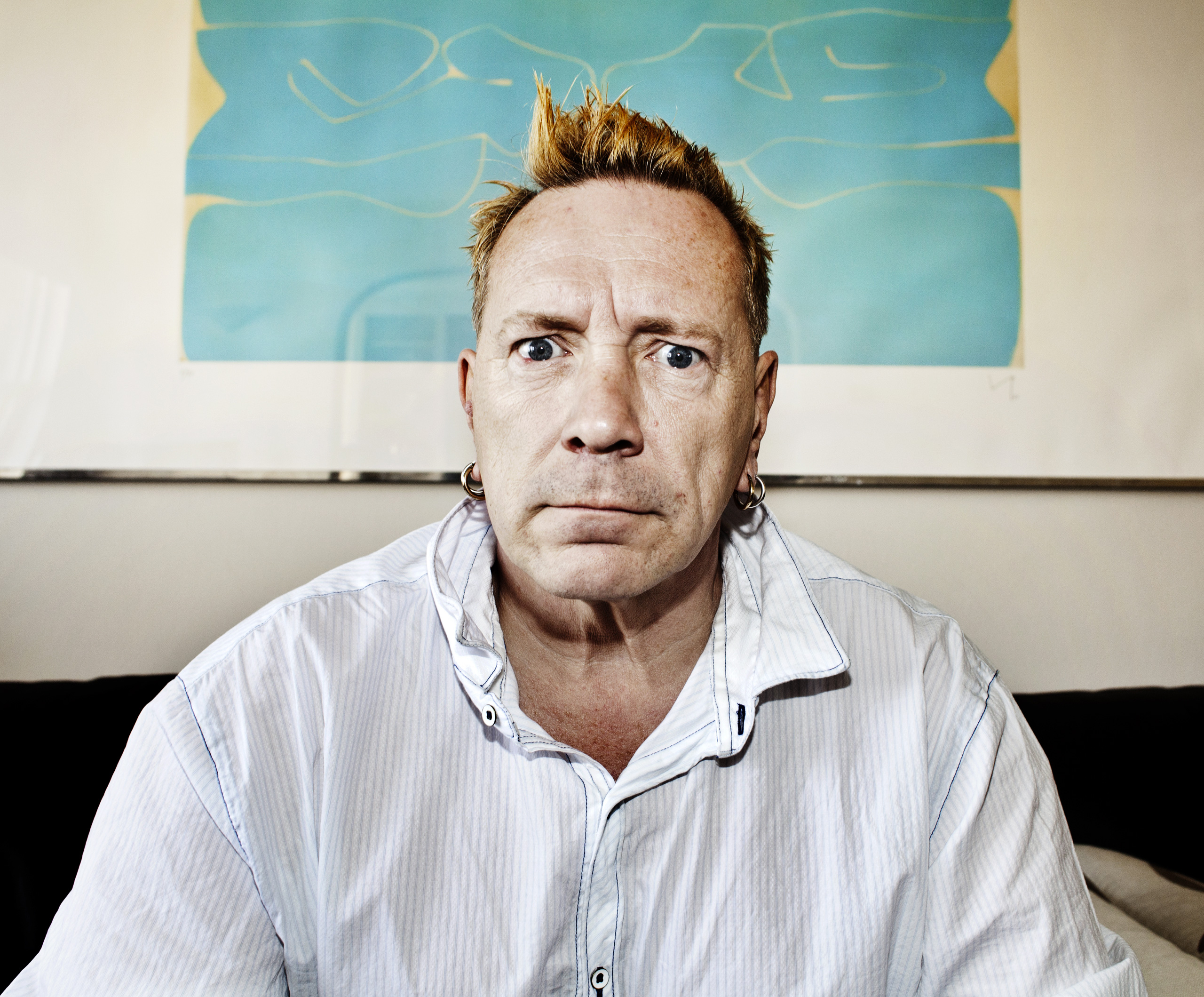“There’s always been variation in audiences with PiL, and the Sex Pistols, actually, I think because of the intrigue element. There’s never been a mass block of uniformity and I like to see the different cultural aspects of an audience – I thrive on that, it shows that we’re doing something really relevant. Walking out and seeing the first thirty rows of people identical to you is no achievement at all.”
A self-started company and record label doesn’t fund and release records itself, though. It’s been John’s infamous butter adverts that have funded the whole PiL reformation and subsequent album. “Every single penny,” he nods proudly. “No personal gain.
“PiL has always been a labour of love and it always will be,” he continues. “I mean, it’s not a huge amount of money [from the Country Life adverts] but it’s enough to have got us kick started.”
Interestingly, it capsizes the conventional and largely accepted notion of musicians in advertising; one often presuming a state of desperation is in play, or perhaps an addiction needs fulfilling – an insatiable hunger for fame or indeed a much more real obsession (see John Cooper Clarke hawking Sugar Puffs in the ’80s to feed his heroin habit), but John is perhaps the sole example of someone using it to directly fund their art. It arguably reshapes the supposed fundamentals of the ‘sell-out’ debate, if indeed you care at all. John Lydon, the poster boy of punk, selling butter – many of us were appalled. Initially, it was a situation he felt forced into.
“[The record labels] kept me bankrupt for years and years and years and made it impossible for me to function as an artist,” he explains, “which drove me into TV land, more or less.
“When I first started, the TV cameras would make me absolutely terrified and very self-conscious and push me into a role I didn’t want to play,” he tells me. “But as the years moved on, I felt more confident in myself, knowing that I had a body of work behind me that could back up anything I had to say or do. So I didn’t feel the need to prove, or over-prove myself. Now, with the camera on or off, it’s the same amount of tension. Oddly enough, things like I’m A Celebrity… Get Me Outta Here helped because there is really no time to be vain. Vanity will lead to a very uncomfortable existence in that kind of world. That’s why I liked it. And oddly enough, people seemed to like me because I was just myself.”
In the two decades that PiL have been absent from our stereos and stages, the music industry has perhaps seen more developments than any other. For John Lydon, most have been unwelcome. In reaction to X Factor and the like, for example, he frustratingly states, “those talent shows, really what they are presenting is mimics! Singing other people’s songs, using other people’s ideas, it’s karaoke. Then they throw it back at you and…” John claps his hands like a sea lion. “…arf, arf!
“That’s not the future,” he insists. “In fact, it’s a review show; it’s the past without the original entertainers. It takes a lot to write a song, it’s a very serious, deeply emotional journey – even a lousy song requires a lot of effort. It’s not nice to see someone come along and hop on top of that and murder it in that show-bizzy way. I think it’s cold and indifferent, almost vindictive and resentful to creativity. Simon Cowell has a lot to answer for; he’s a very bad person.”
Perhaps we need ‘This Is PiL’ more than ever. Thankfully, it’s an album that very much feels like a natural evolution for the group. Unsurprisingly, it continues to take in a collection of sounds, textures and influences spanning an array of other cultures and races, much like PiL’s entire back catalogue. “That’s because I see all music as coming from the same place – the heart,” says John, earnestly.
Growing up in the hugely multi-racial Finsbury Park area, even in the early Sex Pistols days dub and reggae music had a big impact on John and punk culture as a whole, most commonly accredited to Don Letts’ involvement as a DJ at The Roxy club. So when some groups of misguided punks went down the more narrow-minded, racist route that some sadly did, it proved difficult for John.
“It was disgusting and amazingly frustrating for me,” he says with a sigh. “They were immediately ghettoising and limiting themselves. Ghandi is a great political hero of mine, he managed to get the British Empire out of India, but look what that quickly turned into: civil war. And that was similar to the way the punk movement went. I don’t want to sound too conceited here, because I’m not putting myself forward as Ghandi – I wouldn’t dream of such a thing, he is beyond belief to me, one of the ultimate human beings that this planet has ever created – but I can see the link. You start out with all the right motivations and you want the seed to germinate, and instead the germs get in and poison the roots. It’s a shame, but you have to go forth, I can’t be held responsible for everyone’s bad moves, or even the good ones.”
Was it something of a personal let down?
“No, you know what, God bless them all, because I don’t come into this world having the audacity of expectation from others. This is what I do, you can like it or you can lump it, but it would be nice if you understood it.”
